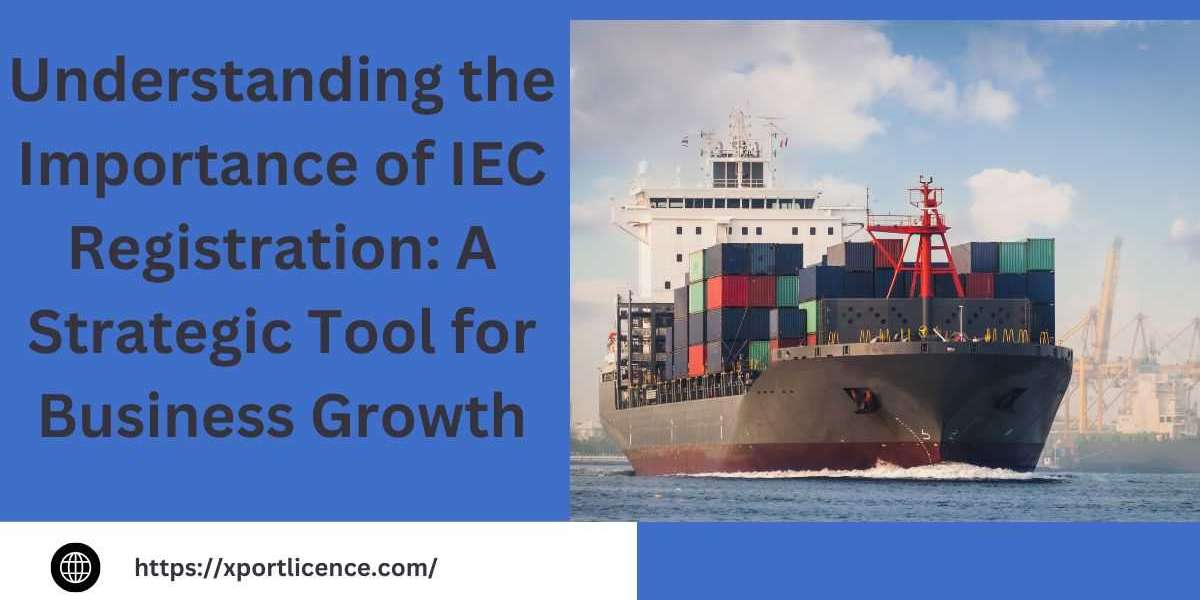Understanding the Importance of IEC Registration: A Strategic Tool for Business Growth
In an era of globalization and seamless connectivity, businesses are no longer confined to domestic markets. The world has become a global marketplace, offering vast opportunities for growth and expansion. For Indian businesses, entering the global arena requires compliance with certain legal prerequisites, one of which is obtaining an Import Export Code (IEC). IEC registration serves as a gateway for businesses to engage in international trade, whether it involves importing goods or exporting products and services.
What is IEC Registration?
IEC (Import Export Code) is a 10-digit business identification number issued by the Directorate General of Foreign Trade (DGFT) under the Ministry of Commerce and Industry, Government of India. This code is essential for any individual or business entity engaged in the import or export of goods or services from India.
It is important to note that IEC registration is a one-time procedure, and once issued, the code remains valid for the lifetime of the business without the need for periodic renewals. Moreover, the IEC is not specific to any goods or services, making it applicable to any product category a business may choose to deal with in the future.
The Strategic Importance of IEC Registration
- Facilitating International Trade IEC registration is mandatory for businesses looking to conduct international trade. Whether a business wants to import goods or export its products, having an IEC is the first step towards legalizing its activities on the global front. Without this code, businesses cannot conduct international trade, which may limit their growth potential. Therefore, IEC registration is a foundational requirement that enables businesses to enter the global marketplace and broaden their revenue streams.
- Enhancing Business Credibility The global market operates on trust, and businesses need to establish credibility to win over foreign clients and partners. IEC registration enhances the trustworthiness of a business by certifying that it complies with Indian laws governing international trade. When dealing with foreign clients or partners, the presence of an IEC number assures them that the business is a legitimate entity authorized to conduct cross-border transactions.
- Unlocking Export Incentives and Schemes One of the most significant advantages of obtaining an IEC is the ability to access various export promotion schemes and incentives offered by the Indian government. Programs like the Merchandise Exports from India Scheme (MEIS) and the Service Exports from India Scheme (SEIS) are designed to encourage businesses to participate in international trade. These schemes offer financial benefits, including tax exemptions and duty drawbacks, which help businesses reduce their export costs and improve profit margins.
- Facilitating International Payments IEC registration simplifies the process of receiving payments from foreign customers. In international trade, foreign currency transactions are common, and banks require businesses to present their IEC when processing these transactions. Without this code, businesses would face difficulties in managing cross-border payments, which could hinder their ability to scale globally. The IEC enables smooth and hassle-free transactions with overseas clients, ensuring that businesses receive payments on time and can efficiently manage their finances.
- Participation in Global Trade Fairs and Exhibitions International trade fairs and exhibitions are crucial platforms for businesses to showcase their products and services to a global audience. These events provide exposure to new markets, foster networking opportunities, and often result in lucrative business deals. However, in many cases, businesses must have an IEC number to participate in such events. Without IEC registration, businesses may miss out on these opportunities to expand their market reach and build international relationships.
The Role of IEC in Business Expansion
IEC registration is not just a legal formality; it serves as a powerful tool for business expansion. Let’s explore how this strategic move can help businesses scale up their operations:
- Access to Global Markets By obtaining an IEC, businesses gain access to global markets. This is particularly important for small and medium-sized enterprises (SMEs) that may have limited growth potential in domestic markets. Exporting products to international markets allows SMEs to tap into larger customer bases, diversify their revenue streams, and mitigate risks associated with market saturation in their home country. The ability to sell products globally opens new avenues for growth, making the IEC code an essential asset for business expansion.
- Navigating Trade Regulations International trade involves navigating complex regulations, tariffs, and duties imposed by different countries. IEC registration helps businesses comply with these regulations, ensuring that their import-export activities are conducted legally and in accordance with global trade laws. This reduces the risk of penalties, legal disputes, or shipment delays, allowing businesses to focus on their core operations and growth.
- Building a Global Brand A business’s success in international markets hinges on its ability to establish a global presence and brand recognition. Having an IEC code is the first step towards building a global brand identity. Whether through online platforms or physical stores, businesses with an IEC code can market themselves as credible international players. This global recognition can lead to enhanced customer trust, increased brand value, and the ability to attract premium clients and partners from across the world.
- E-commerce and Digital Trade Opportunities The rise of e-commerce has revolutionized the way businesses operate, making it easier than ever to reach international customers. Global platforms like Amazon, Alibaba, and eBay have transformed the retail landscape, allowing businesses to sell their products to consumers in any part of the world. However, to engage in cross-border e-commerce, businesses need an IEC code.
- With an IEC, businesses can list their products on these platforms, reach a global customer base, and benefit from the growing trend of online shopping. This digital trade opportunity offers immense potential for businesses looking to expand their footprint without the limitations of physical stores or distribution networks.
Note: Click here to update your IEC Code today - Update IEC Code Online
Conclusion
IEC registration is more than just a regulatory requirement; it’s a strategic asset that enables businesses to unlock global opportunities. From enhancing credibility to facilitating smooth international payments, the IEC code plays a pivotal role in helping businesses engage in cross-border trade. For SMEs and large enterprises alike, obtaining an IEC can open new markets, provide access to government incentives, and enable long-term growth on a global scale.







